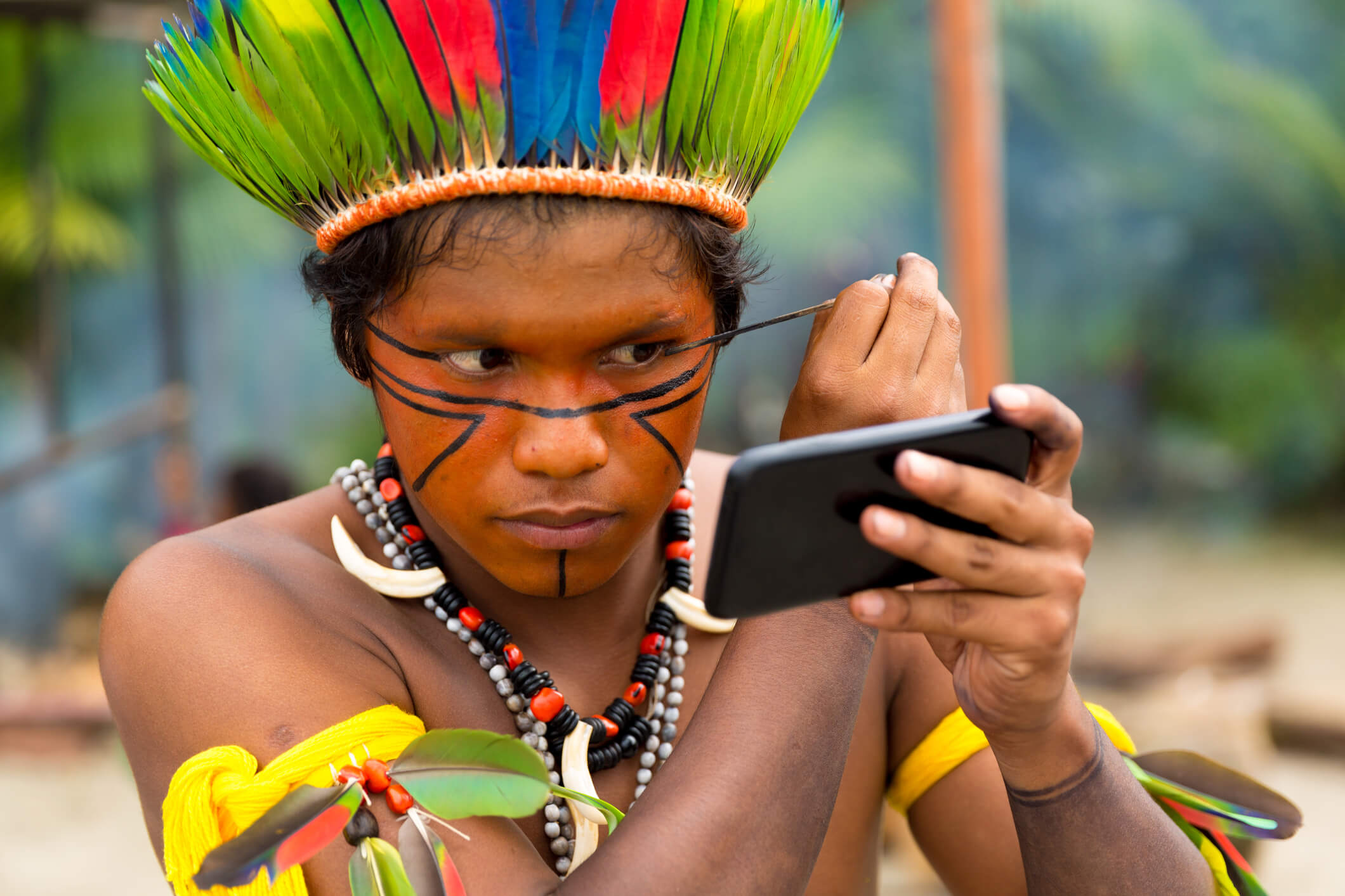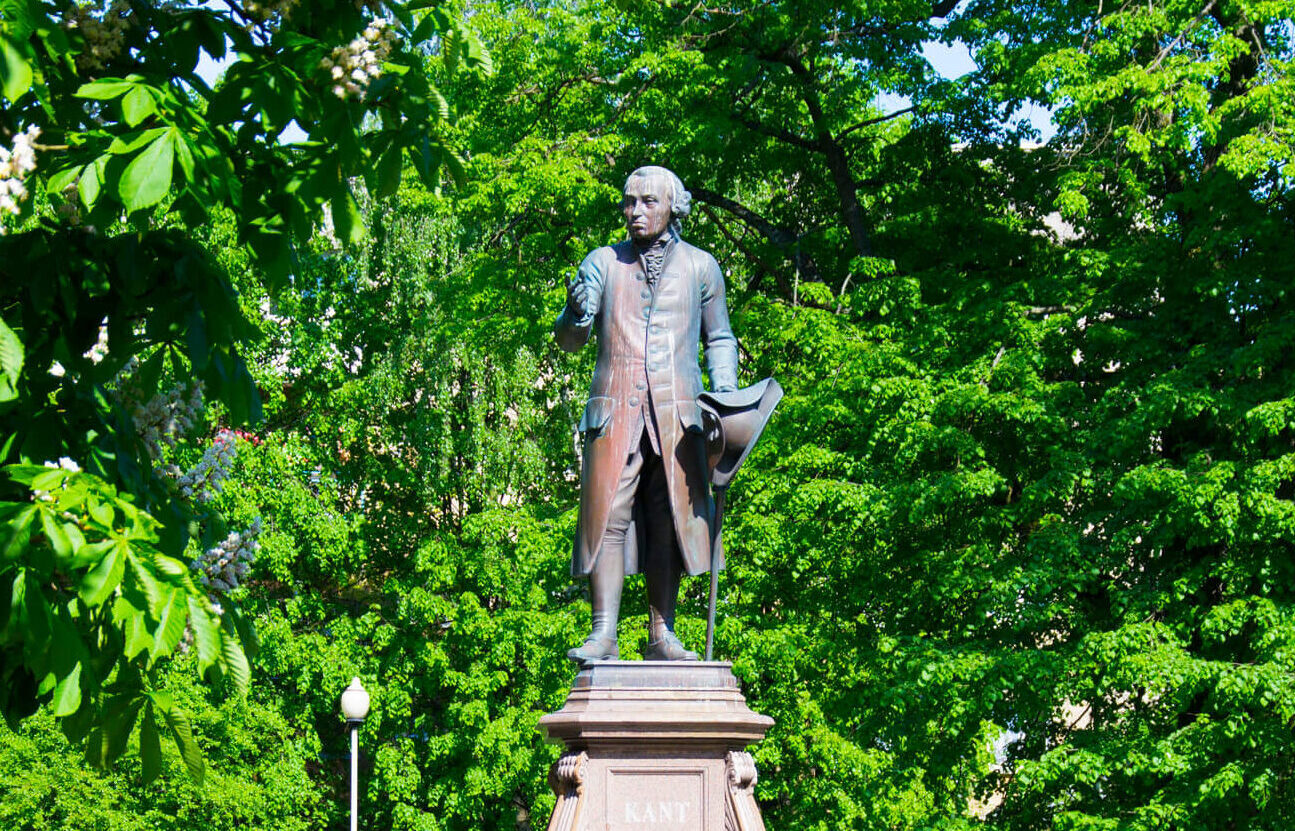I am a multicultural sort of fellow. I learned to play percussion from a Ghanaian drum master. I have played in reggae bands for thirty years. I am active in my local Filipino American Association. But I do have a problem with phony multiculturalism, the kind that is fine with eating a Jamaican patty or wearing an African kente cloth but recoils in horror the moment the culture being “embraced” fails to fully adopt every progressive value.
This topic was brought to the forefront of my mind by a recent article in the New York Post that describes the mixed blessings on the Marubo tribe in Brazil of their recently acquired internet access.
The Post relays a tribal elder’s complaints about his people’s “gift”:
“When it arrived, everyone was happy,” Tsainama Marubo, 73, told The New York Times. “But now, things have gotten worse. Young people have gotten lazy because of the internet, they’re learning the ways of the white people.”
The Post reports a number of similar concerns from elders in the Marubo tribe, concerning pornography addiction, obsessive social media use, and so on.
What is the response of Flora Dutra, the woman perhaps most responsible for bringing the “gift” of internet access to the Marubo, to these numerous complaints voiced by the Marubo themselves? As the Post reports:
“This is called ethnocentrism,” Dutra said of such critiques. “The white man thinking they know what’s best.”
So when Marubo elders bemoan the fact that internet access is bringing the pornographic and social-media-obsessed ways of white people to their tribes, somehow they have become ethnocentric white men thinking they know what’s best for the Marubo!
It would be hard to make up a better example of the phoniness of most progressive “multiculturalism”: traditional, non-Western cultures are valued only in so far as they can aid progressives in their attack on Western civilization. But whenever any traditional people resist the hegemony of progressivism, they are magically transformed into “white men thinking they know what’s best.”
True multiculturalism in our education system might entail students dedicating themselves to actually learning Chinese and studying the works of Confucius and Lao Tse. Or they could, over several years, master the intricate rhythms of Ghanaian drum ensembles and learn how various traditional pieces conveyed lessons on the ordering of Twi or Ga or Fante societies. Or they could learn Sanskrit and encounter the fascinating metaphysical insights of the Vedas. Such a course of rigorous education in the concrete reality of other cultures would be entirely praiseworthy. But how often do we see “multiculturalism” actually developed in this way?
It is worth noting that there is a particular group of cultures that Western progressives especially loathe and whose customs they despise entirely: the cultures of the West’s own past. Of course, as with any culture, there are practices that fall short of ideal in our own history. For instance, it is a very good thing that the era of Jim Crow is over.
But there are several factors that should, but don’t, prevent progressives from leaping to the conclusion that today is obviously better than yesterday and that they are obviously superior to their benighted ancestors.
False multiculturalism cherry-picks items from other cultures that allow progressives to attack Western civilization while ignoring or running roughshod over the many aspects of other cultures that are of no use in that enterprise.
First, how many of us are willing to seriously contemplate the upsetting likelihood that, had we been born into a typical white family in Alabama in 1900, it is highly likely that we would’ve supported Jim Crow? That’s because most of us, most of the time, go along with what is widely thought to be respectable opinion. For every Socrates, who will risk ostracism or death in order to hold his own culture to a higher standard, there are one thousand ordinary citizens who will condemn him. But pretty much every progressive seems to believe that he or she would have been Socrates, even though the odds are one thousand to one against that being true.
What’s more, a culture that kills a million of its own children in the womb every year, that believes that men can magically transform themselves into women by wishing it were so, and if one of those men so wishes, even if he has been twice convicted of rape, will place him in a woman’s prison, is really in no position to look down its nose at other cultures for their superstitions and immorality.
False multiculturalism cherry-picks items from other cultures that allow progressives to attack Western civilization while ignoring or running roughshod over the many aspects of other cultures that are of no use in that enterprise. Consider a recently updated piece on the PBS website titled “A Map of Gender-Diverse Cultures.” The map drops pins on thirty-three cultures that supposedly recognize more than two “genders.” The article itself claims that “hundreds of distinct Indigenous societies around the globe still retain their own long-established traditions for third, fourth, fifth, or more genders.” I suspect that a lot of this counting of societies and genders is the result of confusing how many genders a language has with how many genders of people it recognizes. For example, there are many languages that have no grammatical gender, but that does not imply that the people who speak those languages cannot tell men and women apart. On the other hand, the Worrorra language of Australia has masculine, feminine, terrestrial, celestial, and collective genders. But that does not mean that they believe that some people have a “celestial” sexual orientation and only desire intercourse with comets and asteroids.
Nevertheless, let us grant PBS its count of “hundreds” of cultures that recognize more than two genders of people. That means there are many thousands more that do not. So why conclude that the small minority of cultures that classify people into more than two genders are in some way superior to the much greater number that don’t? It is also telling that no examples are forthcoming of societies where people can simply invent their own, novel “gender,” create brand new pronouns to express it, and then demand that everyone else use such pronouns when speaking to or about them.
There are many other practices common in traditional societies that we don’t find highlighted by PBS. For instance, in many places, tribal governance has depended heavily on defined sex roles and the authority of elders over the younger people in the tribe. In many traditional societies, it would be considered madness that the opinion of someone who had just reached adulthood should carry equal weight as that of a senior member of the group; “one person, one vote” would be seen as insane. (Indeed, the Nigerian Afrobeat musician and political activist Fela Kuti referred to democracy as a “demonstration of craze.”) But I have never seen a progressive outlet run a piece praising “The Many Democracy-Rejecting Cultures.”
And who could possibly imagine PBS publishing a similar article about, say, acceptance of slavery, or head-hunting, or female genital mutilation, or isolation of women during menstruation, and suggesting that because they can find indigenous cultures that embrace such practices, therefore we all should do so? No, PBS is sifting through traditional cultures to find practices that support its predetermined agenda and ignoring the much greater number of counterexamples.
True multiculturalism recognizes that the line separating good and evil runs not only through every human heart but also through every culture. It strives to understand a culture as the people of that culture understand (or understood) it. It tries to avoid either idealizing or demonizing the culture as a whole. The true multiculturalist realizes that, had he been born into some different culture, he almost certainly would have shared its virtues, prejudices, and flaws. And the true multiculturalist recognizes that only through such a humble, dispassionate examination of cultures foreign to us, as well as of our own, can we possibly catch a glimpse of eternal, lasting truths that might guide us in our journey through life.














